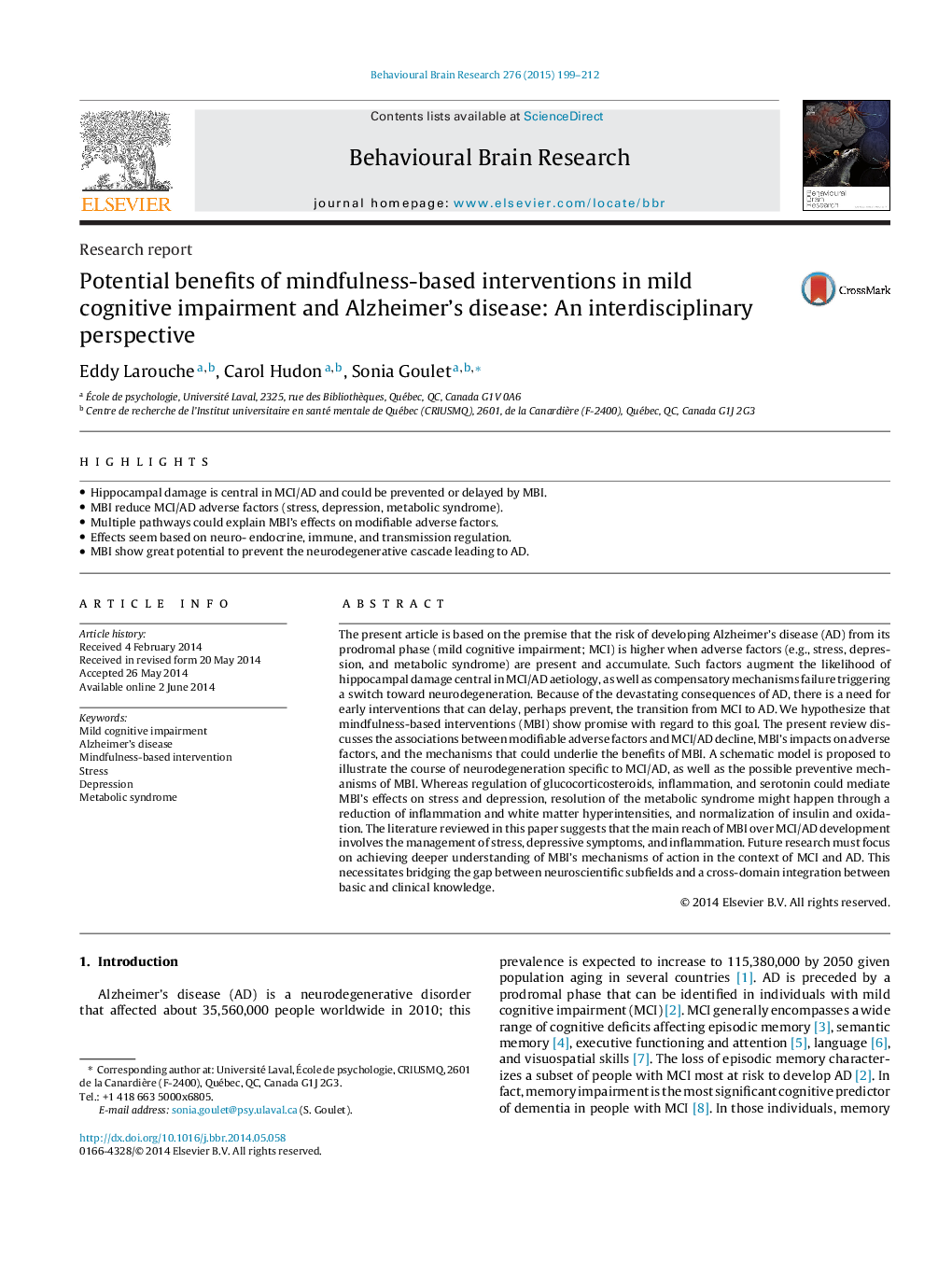| کد مقاله | کد نشریه | سال انتشار | مقاله انگلیسی | نسخه تمام متن |
|---|---|---|---|---|
| 6257458 | 1612956 | 2015 | 14 صفحه PDF | دانلود رایگان |
- Hippocampal damage is central in MCI/AD and could be prevented or delayed by MBI.
- MBI reduce MCI/AD adverse factors (stress, depression, metabolic syndrome).
- Multiple pathways could explain MBI's effects on modifiable adverse factors.
- Effects seem based on neuro- endocrine, immune, and transmission regulation.
- MBI show great potential to prevent the neurodegenerative cascade leading to AD.
The present article is based on the premise that the risk of developing Alzheimer's disease (AD) from its prodromal phase (mild cognitive impairment; MCI) is higher when adverse factors (e.g., stress, depression, and metabolic syndrome) are present and accumulate. Such factors augment the likelihood of hippocampal damage central in MCI/AD aetiology, as well as compensatory mechanisms failure triggering a switch toward neurodegeneration. Because of the devastating consequences of AD, there is a need for early interventions that can delay, perhaps prevent, the transition from MCI to AD. We hypothesize that mindfulness-based interventions (MBI) show promise with regard to this goal. The present review discusses the associations between modifiable adverse factors and MCI/AD decline, MBI's impacts on adverse factors, and the mechanisms that could underlie the benefits of MBI. A schematic model is proposed to illustrate the course of neurodegeneration specific to MCI/AD, as well as the possible preventive mechanisms of MBI. Whereas regulation of glucocorticosteroids, inflammation, and serotonin could mediate MBI's effects on stress and depression, resolution of the metabolic syndrome might happen through a reduction of inflammation and white matter hyperintensities, and normalization of insulin and oxidation. The literature reviewed in this paper suggests that the main reach of MBI over MCI/AD development involves the management of stress, depressive symptoms, and inflammation. Future research must focus on achieving deeper understanding of MBI's mechanisms of action in the context of MCI and AD. This necessitates bridging the gap between neuroscientific subfields and a cross-domain integration between basic and clinical knowledge.
Journal: Behavioural Brain Research - Volume 276, 1 January 2015, Pages 199-212
